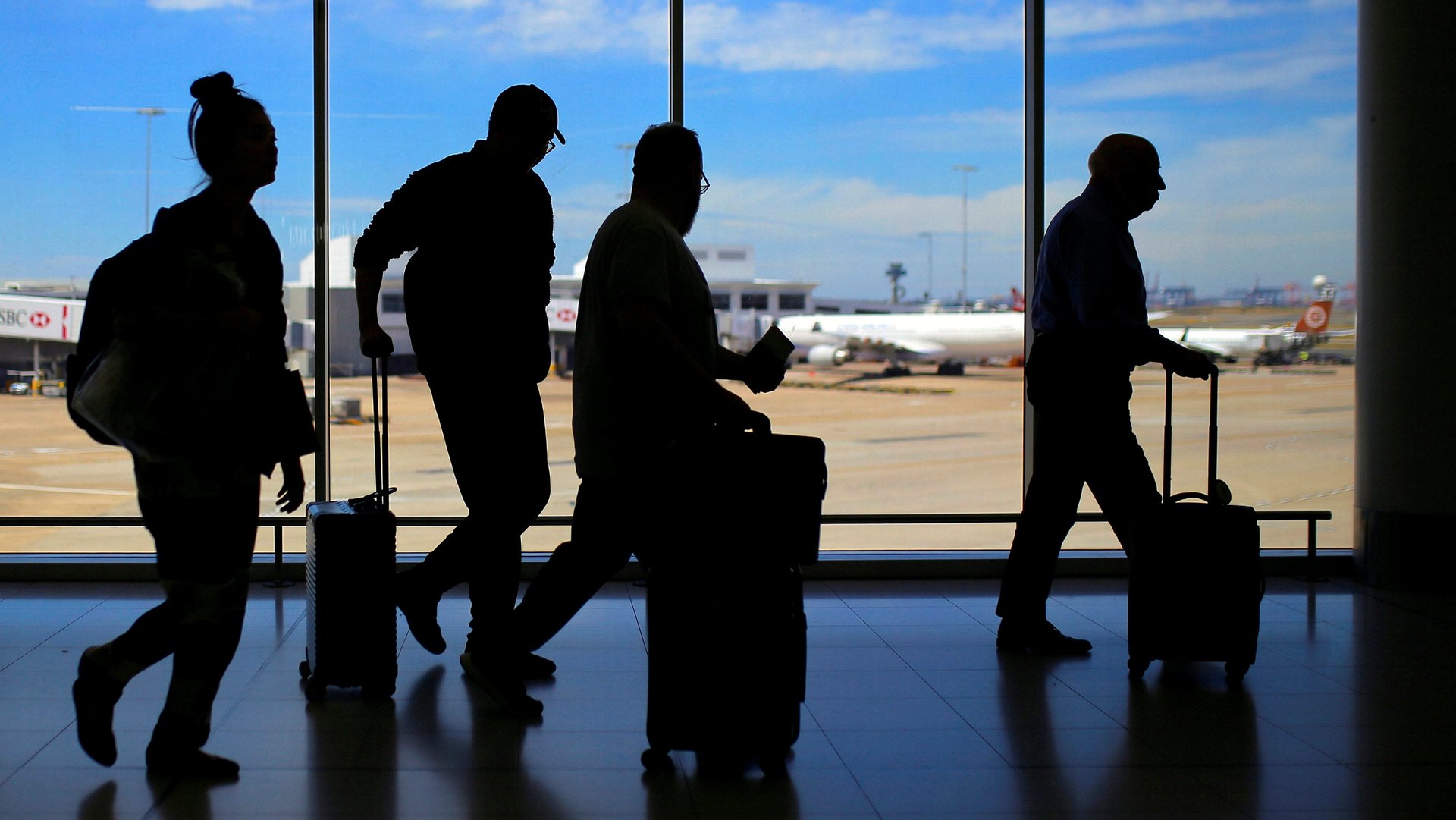To check your trackable suitcase, you need to make it untrackable
If you plan on buying a smart suitcase as a holiday gift this year, make sure it has a removable battery.


If you plan on buying a smart suitcase as a holiday gift this year, make sure it has a removable battery.
American Airlines, Delta, and Alaska Airlines have all announced that as of Jan. 15, anyone checking a smart suitcase must remove the lithium-ion battery before it will be allowed into the cargo hold. Passengers carrying smart luggage onboard must be able to show the battery can be removed if needed, and any smart bags with non-removable batteries will be banned. United and Southwest are expected to announce similar bans soon, according to CNN.
The International Air Transport Association (IATA), the global trade association, told Reuters it could “issue industry-wide standards” for smart luggage as soon as this week, following the restrictions from US carriers.
Smart suitcases can charge phones, weigh themselves, lock remotely, and can be tracked via GPS if they get lost. They’re powered by lithium ion batteries, which pose a fire risk, especially in a crowded cargo hold.
One of the primary reasons consumers purchase smart luggage is their GPS capability, which makes the bags easy to locate if they are lost. But if you remove the battery, the GPS function won’t work.
An explosive track record
Lithium-ion batteries have a history of causing headaches because of their potential to overheat and catch fire. In 2016, the US Federal Aviation Administration banned Samsung Galaxy Note 7 phones from all flights after their batteries starting smoking and exploding. In 2015, many airlines, New York’s transit system, and even the US Postal Service banned hover-boards over similar safety concerns.
The IATA issued guidance on smart luggage earlier this year, regarding the size and storage of lithium-ion batteries but did not ban them from cargo holds.
The new restrictions by US airlines are a blow to smart-luggage companies like Bluesmart, whose batteries are not removable. Bluesmart says it has already sold over 65,000 bags globally and insists their products meet standard safety requirements.
“Before and at the time of production, we did our due diligence to make sure that we complied with all international regulations defined by DOT and FAA,” Bluesmart says on its website. “While most airlines understand and approve of smart luggage, others might still be getting up to speed. We are saddened by these latest changes to some airline regulations and feel it is a step back not only for travel technology but it also presents an obstacle to streamlining and improving the way we all travel.”
Other manufacturers like Away and Raden use batteries that can be easily removed. Bluesmart says it plans to meet with major airlines to discuss exempting its products from the restrictions, though Ross Feinstein, a spokesman for American Airlines, told NPR the airline won’t allow any exceptions to its policies.
“We know these bags are getting popular,” he said. “American is not opposed to smart bags. However, the battery must be removable.”